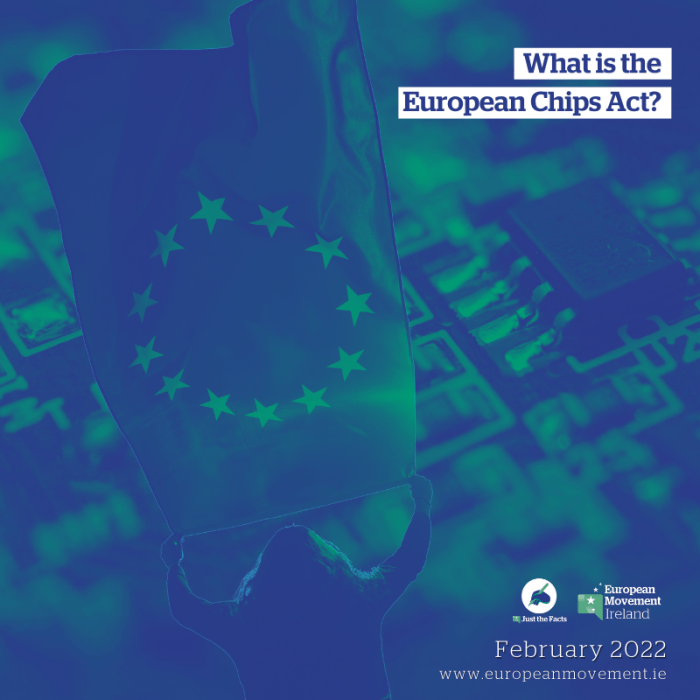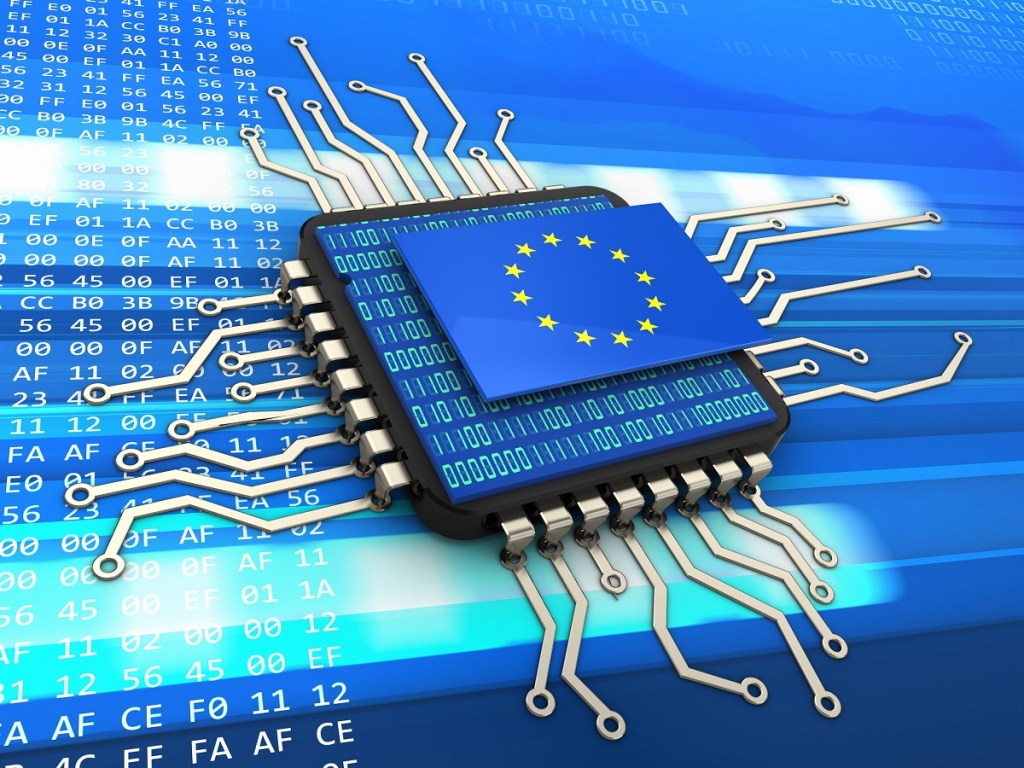EU Parliament Adopts Chips Act: Boosting Europe’s Semiconductor Industry – The European Union is making a bold move to strengthen its position in the global semiconductor market. The EU Chips Act, recently adopted by the European Parliament, aims to boost domestic production, research, and innovation in the critical field of semiconductors.
This ambitious legislation is a response to the growing strategic importance of semiconductors in the global economy, and the need for Europe to secure its own supply chains.
The Chips Act offers a comprehensive package of incentives and support measures, including financial grants, loans, and tax breaks, to encourage private investment in semiconductor research and development. The Act also emphasizes international collaboration and partnerships, recognizing the need for a global approach to address the challenges and opportunities presented by the semiconductor industry.
Strategic Importance of Semiconductors
Semiconductors are the backbone of modern technology, playing a crucial role in the global economy and impacting numerous industries. They are essentially tiny, highly sophisticated components that control the flow of electricity in electronic devices. Their importance stems from their ability to enable the miniaturization, efficiency, and performance of countless technologies we rely on daily.
Key Sectors Reliant on Semiconductors
Semiconductors are integral to the functioning of numerous critical sectors, driving innovation and economic growth. The automotive, electronics, aerospace, and healthcare industries are just a few examples where semiconductors play a pivotal role.
- Automotive:Semiconductors power everything from engine control units to advanced driver-assistance systems (ADAS) and infotainment systems. They are essential for electric vehicles (EVs), enabling features like battery management, regenerative braking, and autonomous driving capabilities.
- Electronics:Semiconductors are the heart of consumer electronics, including smartphones, laptops, tablets, and televisions. They power processors, memory, and communication modules, enabling these devices to function and connect with the world.
- Aerospace:Semiconductors are vital for aerospace applications, including aircraft navigation systems, flight control systems, and satellite communications. Their reliability and performance are critical for ensuring safe and efficient air travel.
- Healthcare:Semiconductors are used in medical devices, including imaging equipment, diagnostic tools, and drug delivery systems. They enable advancements in medical technology, improving patient care and healthcare outcomes.
EU Chips Act: Securing Europe’s Supply Chains
The EU Chips Act is a strategic initiative aimed at strengthening Europe’s semiconductor industry and securing its supply chains. Recognizing the critical dependence on semiconductors and the potential vulnerabilities in global supply chains, the EU has taken proactive steps to address this challenge.
The Chips Act Artikels a comprehensive plan to:
- Boost domestic semiconductor production:The EU aims to increase its share of global semiconductor manufacturing capacity by supporting research, development, and investment in new fabrication plants (fabs) within Europe.
- Attract investment:The Chips Act provides incentives and funding to attract private and public investment in semiconductor research, design, and manufacturing. This will encourage companies to establish or expand their operations in Europe.
- Strengthen partnerships:The EU is actively engaging with international partners to collaborate on semiconductor research, development, and production. This includes partnerships with countries like the United States, Japan, and South Korea.
- Support skills development:The Chips Act emphasizes the importance of training and education in semiconductor technologies. It aims to develop a skilled workforce capable of supporting the growing semiconductor industry in Europe.
Financial Incentives and Support Measures: Eu Parliament Adopts Chips Act

The Chips Act, besides promoting research and development, also offers significant financial incentives and support measures to encourage private investment in the semiconductor industry. These incentives aim to attract domestic and international companies to build and expand semiconductor manufacturing facilities in the United States.
Direct Financial Assistance
The Act provides a range of direct financial assistance programs to support semiconductor manufacturing and research. This assistance includes grants, loans, and tax credits, all designed to encourage private investment and stimulate innovation.
Grants
The Act allocates billions of dollars for grants to support semiconductor manufacturing projects. These grants can be used for a variety of purposes, including:
- Construction and equipment for new fabrication facilities
- Expansion of existing facilities
- Research and development of advanced semiconductor technologies
Loans
The Act also establishes a loan program to provide financial assistance to companies building or expanding semiconductor manufacturing facilities. These loans can help companies cover the significant upfront costs associated with building or upgrading these facilities.
Tax Credits
The Act provides a 25% tax credit for investments in semiconductor manufacturing facilities. This tax credit can significantly reduce the cost of building or expanding a facility, making it more attractive for companies to invest in the United States.
Research and Development Support
The Act also includes significant funding for research and development in semiconductor technologies. This funding is intended to support the development of next-generation semiconductor technologies, such as advanced node chips and artificial intelligence chips.
National Semiconductor Technology Center
The Act authorizes the creation of a National Semiconductor Technology Center, a research and development hub focused on developing advanced semiconductor technologies. This center will bring together researchers from industry, academia, and government to collaborate on cutting-edge semiconductor technologies.
University Research Programs
The Act also provides funding for university research programs focused on semiconductor technologies. These programs will help train the next generation of semiconductor engineers and scientists, ensuring a robust talent pipeline for the industry.
Encouraging Private Investment
The combination of direct financial assistance and research and development support creates a strong incentive for private investment in the semiconductor industry. The Act’s financial incentives, combined with its focus on research and development, aim to attract both domestic and international companies to invest in the United States.
Obtain a comprehensive document about the application of inside cur8s mission scale carbon removals save the planet that is effective.
The Chips Act is a critical step in ensuring that the United States remains a global leader in semiconductor technology. The Act’s financial incentives and support measures will help to attract investment, stimulate innovation, and create jobs in the semiconductor industry.
International Collaboration and Partnerships
The EU’s Chips Act recognizes the global nature of the semiconductor industry and emphasizes the importance of international cooperation to achieve its goals. The Act Artikels strategies for forging strong partnerships with other countries and organizations to secure the necessary resources, expertise, and technological advancements for a thriving European semiconductor ecosystem.
Key Partnerships and Collaborations
The Chips Act promotes collaboration with key partners to leverage their strengths and create a mutually beneficial ecosystem. The EU has identified several strategic partnerships that are central to its semiconductor ambitions:
- United States:The EU and the US share a common interest in strengthening their semiconductor industries. The Chips and Science Act, passed in the US, complements the EU’s Chips Act by providing significant financial incentives for domestic semiconductor production and research.
Joint initiatives between the two regions, such as the EU-US Trade and Technology Council, focus on enhancing cooperation in technology, trade, and investment, including in semiconductors.
- Japan:Japan is a leading player in the semiconductor industry with a strong research and development base. The EU and Japan have a long-standing partnership in technology and innovation, and the Chips Act aims to strengthen this collaboration. Joint projects and initiatives are expected to focus on areas like advanced materials, design tools, and manufacturing processes.
- South Korea:South Korea is another key player in the global semiconductor landscape, known for its expertise in memory chips and advanced manufacturing. The EU and South Korea have established a strategic partnership in science, technology, and innovation, and the Chips Act seeks to further strengthen this relationship.
Collaboration is expected to focus on areas like research and development, talent exchange, and supply chain diversification.
- Taiwan:Taiwan is a global leader in semiconductor manufacturing, producing a significant portion of the world’s chips. The EU has established a strong relationship with Taiwan, recognizing its crucial role in the global semiconductor supply chain. The Chips Act aims to enhance this collaboration by promoting joint research and development initiatives, fostering talent exchange, and exploring opportunities for investment and supply chain diversification.
- International Organizations:The EU also seeks to collaborate with international organizations like the World Trade Organization (WTO) and the Organisation for Economic Co-operation and Development (OECD) to address global challenges in the semiconductor industry. These organizations provide platforms for dialogue and cooperation on issues such as trade, investment, and technology standards.
Role of the Chips Act in Fostering Global Cooperation
The Chips Act plays a pivotal role in facilitating international collaboration in the semiconductor sector by:
- Creating a Level Playing Field:The Act’s financial incentives and support measures aim to create a more competitive environment for European semiconductor companies, enabling them to attract investment, talent, and partnerships on a global scale.
- Promoting Joint Research and Development:The Chips Act encourages collaboration with international partners on research and development projects, fostering innovation and sharing of expertise.
- Addressing Supply Chain Vulnerabilities:The Act aims to strengthen the resilience of the global semiconductor supply chain by promoting diversification, reducing reliance on single suppliers, and enhancing cooperation on critical technologies.
- Developing Common Standards:The EU is working with international partners to develop common standards and regulations for semiconductor technologies, ensuring interoperability and reducing barriers to trade.
Challenges and Opportunities
![]()
The EU Chips Act, while a crucial step towards bolstering Europe’s semiconductor industry, faces several challenges in its implementation. However, it also presents significant opportunities for European innovation and competitiveness in the global semiconductor landscape.
Potential Challenges
The successful implementation of the Chips Act hinges on overcoming various challenges.
- Securing sufficient funding:The Act’s ambitious goals require substantial financial investments. Ensuring adequate funding and efficiently allocating resources will be crucial for its success.
- Attracting and retaining talent:The semiconductor industry demands a highly skilled workforce. The EU needs to address the skills gap and create attractive conditions to attract and retain talent within Europe.
- Navigating geopolitical complexities:The global semiconductor landscape is intertwined with geopolitical tensions. The EU must navigate these complexities while fostering international cooperation and partnerships.
- Balancing public and private investment:Finding the right balance between public and private investment is essential for driving innovation and fostering a sustainable semiconductor ecosystem.
- Ensuring a level playing field:The EU must ensure a level playing field for European companies competing with global players, particularly in areas like subsidies and trade policies.
Opportunities for European Innovation, Eu parliament adopts chips act
The Chips Act presents a unique opportunity for Europe to foster innovation and enhance its technological leadership.
- Boosting research and development:The Act’s focus on research and development will encourage investment in cutting-edge technologies, potentially leading to breakthroughs in areas like artificial intelligence, quantum computing, and advanced materials.
- Developing a robust semiconductor ecosystem:The Act aims to create a comprehensive ecosystem, fostering collaboration between research institutions, universities, and industry players. This will facilitate knowledge transfer and accelerate innovation.
- Attracting investments and fostering startups:The Act’s financial incentives and support measures will attract investments and encourage the growth of innovative startups in the semiconductor sector. This will create a dynamic and competitive environment.
- Promoting European leadership in key technologies:The Act’s focus on advanced technologies, like next-generation memory and processing technologies, will position Europe as a leader in these critical areas, enhancing its strategic autonomy and competitiveness.
Long-term Implications for the Global Semiconductor Landscape
The EU Chips Act is poised to reshape the global semiconductor landscape in the long term.
- Increased competition and innovation:The Act’s focus on fostering a robust European semiconductor industry will increase competition and drive innovation across the global landscape.
- Strengthened strategic autonomy:The Act aims to reduce Europe’s dependence on external suppliers, enhancing its strategic autonomy and resilience in the face of global disruptions.
- New partnerships and collaborations:The Act will encourage international partnerships and collaborations, fostering a more integrated and interconnected global semiconductor ecosystem.
- Sustainable development:The Act emphasizes sustainability considerations, promoting the development of energy-efficient and environmentally friendly semiconductor technologies.





